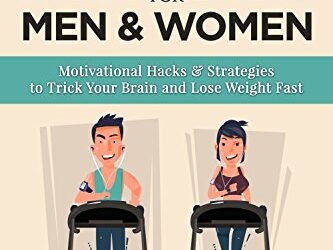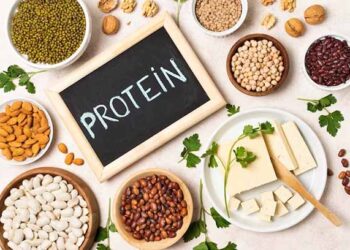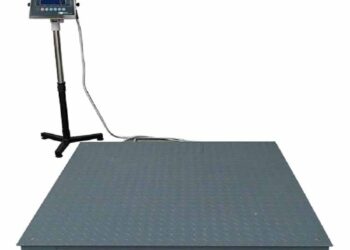
Among the many myths about weight loss interventions, there is only one simple tip you need to know, that is medically proven and fact-based. This tip is based on the understanding that the body gives back to you what you give to it.
Many people are ignorant of the fact that the body does not produce anything outside what you feed it. In other words, no one gets overweight without eating unbalanced calories.
In other words, excessive weight gain comes from an imbalance between what you feed your body and what your body eventually uses daily.
Ignorance of this has made people wallow in their laziness and continue in their poor lifestyle and eating choices while chasing some magical solutions in the name of “weight-burning teas, drinks, and supplements”.
In this article, you will understand the absolute weight loss tips that will revolutionize how you shed excess weight and what you believe about weight loss.
Types of Weight Loss Methods Available
While it’s hard to differentiate fake weight loss methods from science-based ones, here are some of the classes of weight loss interventions available today.
- Dieting.
- Exercise.
- Herbs, teas, and drinks.
- Drugs and medicine.
- Surgical.
- Weight tracking and monitoring, etc.
I will talk more about these in the next section where we explore the absolute tips you need to know about burning weight. The ideas in the next section will throw more light and clarify some of the things you probably already know.
The Absolute Weight Loss Tips You Need To Know
Who doesn’t know about exercise and dieting for controlling body weight and shedding off excess fats? In this section, I will discuss more of these weight loss interventions and the absolute weight loss tips to help you in your journey to fitness.
1. Dietary modification
The number #1 thing you need to know about weight loss is that the body gives back what you give to it. Number #2 is that you gain weight when your total calorie consumed exceeds your body’s calorie expenditure.
There is no magic wand to burn off your body fats if you don’t stay disciplined to control what and how much you eat. This is where the concept of calorie restriction comes into play.
Be mindful of your meal portion sizes. Understand the calorie content of the foods you eat, and you don’t have to know the exact calorie value. As a guide, fats, protein, and carbohydrate foods have the highest calorie content, in that order.
Focus on consuming a well-balanced diet that includes a variety of foods from all food groups. Incorporate fruits and fibers into your diet, as that can give you a feeling of fullness without loading you with excess calories.
Drink plenty of water throughout the day, and avoid skipping meals, especially breakfast. Thirst may be mistaken for hunger and skipping means will make you over-eat later in the day or night.
Avoid extreme dieting options like starvation that promise rapid effects as weight loss is often a gradual process.
Lastly, minimize intake of processed and sugary foods like snacks and beverages as these are high in empty calories and low in nutrients. The calories you get don’t fill you but they add to the calorie load of the body. You might need to eat more calories to get satisfied.
If you need to snack between meals, consider healthier options like fruits, nuts, and yogurt instead of chips, pies, and candy.
2. Exercise
Exercise is a great way to increase your body’s calorie expenditure and lose excess weight. Incorporate regular exercises into your routine.
A minimum of 150 minutes of moderate-intensity aerobic exercise or 75 minutes of vigorous exercise per week can help you lose considerable weight in record time. Also, incorporate muscle-strengthening activities into your routine exercises.
Exercise also improves your metabolism and helps your body burn calories more efficiently. It also helps to convert excess body fats to energy, thereby burning them off.
It is important to keep your exercise routine balanced as over-exercising can cause a problem. As you exercise consistently, eat an adequate and balanced diet to replenish your body’s energy stores. This way, you only get to burn off the excesses instead of over-exercising with inadequate food intake to consume your normal body mass.
Again, weight loss is a gradual process. You should be consistent with your exercises and be sure to resume as soon as possible when you get too lazy to work hard.
People who lead sedentary lifestyles end up becoming overweight and obese. Thus, it would help if you chose to take a walk sometimes even when you could drive down. Go out to work after eating instead of going to lie down on your bed or sitting in front of the TV. A sleep-eat-sleep lifestyle isn’t good for maintaining body fitness.
3. Green tea/metabolism control
Green tea and other herbal tea concoctions promise to burn off excess weight but the exact mechanism is what most people don’t know. Insufficient knowledge about how these herbs are what makes people spend tons of money on them without any substantial improvement.
Among the special weight-loss teas often advertised, green tea is one of the most renowned and effective herbal solutions to excessive weight gain. Green tea is rich in catechins and caffeine which are believed to slightly boost calorie metabolism.
Genetics plays a great role in body weight. Some people have a higher basal metabolism than others. This means that their body is more efficient at burning down calories than other people.
People who have a higher basal metabolism may eat more than other people but their body quickly metabolizes the excess calories for energy. Such people are usually more physically active.
Green tea may indirectly help you lose excess weight by improving your metabolism. The substances in it may also help suppress appetite so that you can get filled easily without eating three bowls or servings.
One popular myth about herbal teas is that they can burn off excess fats without you having to do anything else. That is highly incorrect. You still need to control your food intake because if you continue to eat more than green tea helps you metabolize, there will be excess calories to be stored as body fat.
4. Drugs and medications
Medications for weight loss can be categorized into those that regulate appetite and those that reduce intestinal absorption of fats. Examples are statins like Orlistatin (which reduces fat absorption), and Liraglutide which is used to treat obesity through its ability to regulate appetite and food intake.
Other examples are Phentermine-Topiramate (Qsymia), Buproprion-Naltrexone (Contrave), Lorcaserin, and Phentermine. These drugs may be used to treat food addiction or excessive appetite.
Combined with regular physical exercise, these drugs may be very helpful for achieving weight loss. However, one must not depend strictly on medications for self-control over food. You should instead discipline yourself to make better food choices and adopt an active lifestyle.
5. Consult a healthcare professional
If you have specific health concerns or struggling to lose weight, consider consulting a healthcare professional or a registered dietitian for personalized guidance and advice. This includes getting a prescription from your doctor or healthcare professional.
Certain underlying conditions may be responsible for the issues with one’s appetite. For example, depression, eating disorders like bulimia nervosa, and obsessive disorders may be responsible for one’s excessive weight gain. A healthcare professional can help address any underlying cause of over-eating or unwanted weight gain.
It is also important you consult a healthcare professional to avoid falling victim to unhealthy weight loss tips you might receive from other people who are only interested in marketing their so-called “weight-loss products”.
Adjuncts to Weight Loss Interventions
Aside from the above tips for losing weight, there are a few other things one needs to ensure.
- Stress management: Stress is a common precipitant of emotional eating. Stress management practices like resting, meditation, breathing exercises, and companionship can help deal with eating problems and weight gain.
- Adequate sleep: Lack of sleep can disrupt hormones responsible for regulating appetite, potentially leading to overeating.
- Weight tracking and monitoring: Keep a weight chart and regularly monitor your weight to see your progress. This can motivate you to continue and also help you identify areas where you can improve.
- Support system: Consider seeking support from a friend, family member, or support group to help you stay focused and motivated. When you feel like quitting, talk to someone who can motivate you to continue.

















